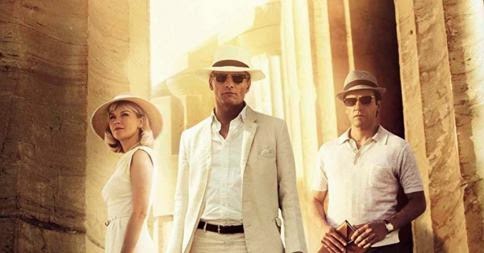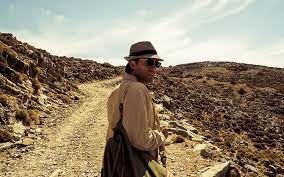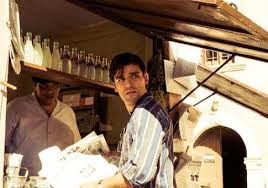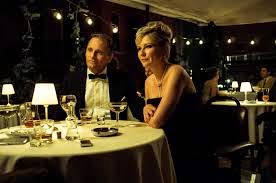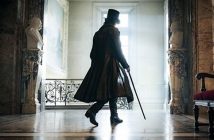Hot on the heels of Tara Moss’s talk about labels and ‘not judging a book by it’s cover’, I was offered a ticket to see Hossein Amini’s, The Two Faces of January. An excellent thriller about lies people hide behind, the public faces they present. I’m starting to think that maybe the universe is trying to tell me something.
Set in 1962, The Two Faces of January begins with Rydal (Oscar Issac), a young Greek speaking American who’s charm and local knowledge of Athens sees him operating as a freelance tour guide. Minutes in we glimpse behind his veneer and see the small time hustler within, as he short changes clients.
Hankering for bigger fish, Rydal soon notices the outwardly affluent Chester MacFarland (Viggo Mortensen) and his attractive young wife Collette (Kirsten Dunst), who’ve arrived in Athens from America. Impressed by Chester’s wealth Rydal is soon showing them around the markets and accepting an invitation to become their personal tour guide.
It’s not long before we learn that Rydal has more in common with Chester than he knows.
Chester, we learn, is a brilliant con artist, Rydal in another twenty years’ time perhaps. A potential replacement father figure, for the father Rydal has only just lost.
When the private detective pursuing Chester meets an untimely death, Chester and Collette flee to the Greek Islands and Istanbul, with an unsuspecting Rydal in tow. With their photos in the paper it’s not long before Rydal sees the other side of Chester and realises what he’s now involved in.
The Two Faces of January, adapted from Patricia Highsmith’s novel, has a wonderful Hitchcock feel as the story twists and turns. Mortensen exudes the perfect balance of charisma, deception and panic as the walls close in. Isaac matches Mortensen’s performance and Dunst is believable as the bored younger wife.
Besides being an intriguing tale of murder and deception, the movie also explores the notion of what it means to be a father.
The scenery is beautiful and the costumes by Stephen Noble are wonderfully stylish, like old Hollywood.
‘I was inspired by the French fashion houses of that time,’ explained Noble.
‘It’s the way movies used to look,’ said Mortensen.
Studiocanal

